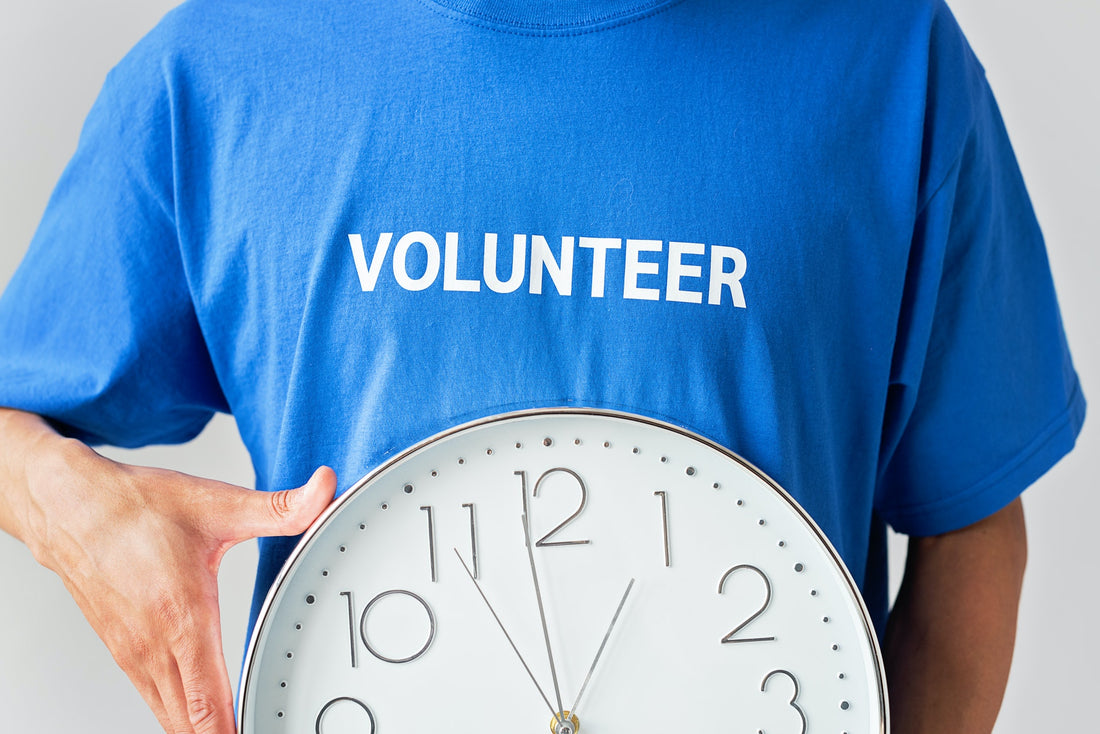
Show Love For Society: The Health Benefits of Volunteering and Doing Good
Share
In keeping with February’s theme of love and heart-focused health, we want to redefine the concept of love on a grander scale: Showing love, support, and investment in society and the communities we call home. And new research shows that doing good isn’t just good for those around us. In fact, volunteering and showing love to our neighborhood, workplace, school, and other social circles we move in has been shown to bring about significant health benefits for your body, mind and immune system.
Love For Your Neighborhood: The Health Benefits of Doing Good
In a groundbreaking report published in the peer-reviewed scientific journal BMC Public Health, scientists outlined a series of health benefits when it comes to doing good, volunteering, contributing to society, and living a life of love and generosity. Let’s break down some of the fascinating results in this wide-ranging report.
1. You’ll Boost Your Brain Health
 If you want to think clearer, have more breakthroughs, and experience new levels of focus, creativity and innovation, try doing something good for those around you.
If you want to think clearer, have more breakthroughs, and experience new levels of focus, creativity and innovation, try doing something good for those around you.
According to researchers at John Hopkins University, people who volunteer regularly showed significant improvements in brain functioning.
This is important for people of all ages, but especially pertinent to those of us who are older and worried about aging-related cognitive decline. It all starts with love!
2. You’ll Experience General Improvements in Wellness and Health
 Worried about your physical health, mental health, and immune health? Take your regular BioPro Plus-500 supplements (an effective way to support a strong immune system) and get out there to show some love to your community! According to the Mayo Clinic Health System, acts of kindness and volunteerism boost numerous significant markers of wellness.
Worried about your physical health, mental health, and immune health? Take your regular BioPro Plus-500 supplements (an effective way to support a strong immune system) and get out there to show some love to your community! According to the Mayo Clinic Health System, acts of kindness and volunteerism boost numerous significant markers of wellness.
“Research has found that volunteering among adults, age 60 and over, provided benefits to physical and mental health, and volunteers report better physical health than do nonvolunteers,” explains the Mayo Clinic Health System’s doctors. “Research also has shown that volunteering leads to lower rates of depression and anxiety, especially for people 65 and older.”
This may be because doing acts of love for others triggers the release of dopamine and other feel-good hormones. “By spending time in service to others, volunteers report feeling a sense of meaning and appreciation, both given and received, which can have a stress-reducing effect,” notes the Mayo Clinic. “Reduced stress further decreases risk of many physical and mental health problems, such has heart disease, stroke, depression, anxiety and general illness.”
3. You’ll Feel More Connected, and Connectedness Equals Health
 “People who feel socially isolated or detached, or experience a chronic threat of social losses, experience an upregulation in inflammatory genes and a downregulation in immune response genes,” says researcher Steven Cole, PhD, in an interview with Stanford Health.
“People who feel socially isolated or detached, or experience a chronic threat of social losses, experience an upregulation in inflammatory genes and a downregulation in immune response genes,” says researcher Steven Cole, PhD, in an interview with Stanford Health.
In everyday language, social connection helps increase your immune system’s ability to respond to threats. And doing acts of love and kindness to others in your community is one of the most effective ways to maintain healthy, positive social connections.
Ready to power-up your health through showing love to others? Try these ideas:
- Find an organization that specializes in a cause or social issue you’re passionate about, and ask about volunteer opportunities
- Invite your family and friends to pick up street litter or clean up a local beach or lake
- Ask your neighbors if you can help with yard cleanup, etc.
- Walk dogs at the local humane society, or play with kittens waiting for adoption at a shelter
- Tutor at community centers, schools, etc.
- Cook and serve meals at local soup kitchens, shelters, etc.
Together, we can show the world more love. And in doing so, show our own bodies more love, too.
References:
- https://bmcpublichealth.biomedcentral.com/articles/10.1186/s12889-017-4561-8
- http://www.futurity.org/brain-benefit-for-seniors-who-volunteer/
- https://www.mayoclinichealthsystem.org/hometown-health/speaking-of-health/3-health-benefits-of-volunteering
- https://scopeblog.stanford.edu/2012/08/09/the-scientific-importance-of-social-connections-for-your-health/
